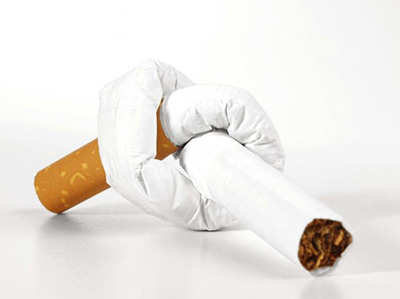
For smoking married couples preparing for the IVF protocol, one natural question arises: is the harm of smoking exaggerated? Maybe all this is the machinations of doctors, and nothing terrible will happen from 5-10 cigarettes a day? “All the same, they smoke - and give birth to themselves calmly,” smokers say. Is it so?
About nicotine
There is an opinion that nicotine is practically nicotinic acid, that is, a vitamin necessary for our body. Indeed, these substances have a similar structure. Moreover, nicotinic acid is produced by the oxidation of nicotine. However, such a chemical reaction does not occur in the body.
Nicotine has a negative effect on the nervous system. In addition, it causes massive vasospasm, as a result of which, after smoking a cigarette, all organs experience a severe oxygen deficiency. This applies to both the uterus and fallopian tubes and the male genital organs. Namely, the reproductive system is planned to be "used" for in vitro fertilization.
Is there anything more harmful in cigarettes than nicotine?
Yes, these are resins. And they are carcinogenic. This means that when cells are dividing in an organism saturated with resins, much more initially damaged (mutated) units are formed. The immune system does not have time to destroy all such cells, and they accumulate and can cause cancer.
First of all, rapidly dividing cells undergo mutations. These are sperm. And although in men they are renewed after each ejaculation, the tar has time to act on each of their generations, because, unlike nicotine, they are not excreted from the body for a long time.
Smoking and the female factor in IVF
Nicotine causes a spasm of all vessels, including the uterus. Consequently, the endometrium is constantly lacking oxygen. If the hypoxia of the inner layer of the uterus is significant, then it will not be able to "accept" the embryos introduced into the uterine cavity.
In addition to the fact that this is money and wasted time, it is also a great stress for the body: when it was intensively prepared for pregnancy, but it did not come. After such an unsuccessful IVF attempt, the next one can be taken not immediately, but only after 6 months or more.
If the embryo implantation took place, and the woman continues to smoke, she risks again. Oxygen starvation of the tissues of the uterus, and now the cells of the embryo, can cause miscarriage.
A spontaneous abortion can occur for another reason, also associated with smoking. If a woman smoked for more than a year, her eggs were adversely affected by the mutagenic effect of the tar contained in the cigarette. It could well happen that for the IVF protocol exactly those were taken that were sufficiently damaged. Having combined with the sperm, they formed a common structure with disrupted genetic information, which, because of this, was rejected by the female body.
 Smoking and the male factor in IVF
Smoking and the male factor in IVF
If the effect of smoking on a woman's body has been studied and understood for a long time, then the "contribution" to the success of IVF semen from a smoking man required research. This was done by German scientists. They gathered 301 married couples who were preparing for IVF and divided them into smokers and non-smokers. Then they watched how the embryo replanting would end. It turned out that from the group where the man did not smoke, the embryo implantation was successful in 38% of cases. Of the wives of men who smoke, only 22% become pregnant.
Thus, smoking significantly reduces the chances of IVF success, even if one spouse smokes. A man's nicotine addiction can also cause embryos introduced into the uterus to not take root.
